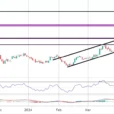Oil prices were broadly lower during Wednesday’s Asian session on reports that Chinese crude imports fell to their lowest levels in a year. China’s October oil imports fell to 7.3 million barrels per day in October, down from a near record high of approximately 99 million barrels per day in September, the country’s General Administration of Customs reported on Wednesday.
U.S. WTI futures were down 0.54 percent to $5689 per barrel and Brent crude futures were down 0.46 percent to $63.40 per barrel as of 2:18 p.m. HK/SIN on Wednesday. Also weighing on oil prices were continuing tensions in the Middle East which traders worry may have a direct impact on trade.
Despite Wednesday’s price drop, analysts are optimistic that oil markets remain well supported. The support comes from OPEC’s continued efforts to curb production in order to keep prices stable. On Tuesday, OPEC’s secretary general, Mohammad Barkindo, announced that he is seeking a consensus agreement from OPEC members to extend the production cuts past the current March 2018 deadline, in advance of OPEC’s next meeting which is scheduled for November 30th.
In its 2017 World Oil Outlook, OPEC noted that an increase in the use of electric vehicles could reduce global oil demand and could potentially cause demand to reach a plateau by the second half of the 2030s, a possibility that would hinder the group’s long-term prospects. The report noted that electronic vehicles have recently transformed from overly expensive and impractical to more affordable and user-friendly, making their appeal significantly higher now and in the future.
Despite this potential stumbling block, Barkindo says that oil use hasn’t peaked yet and that its market share is expected to rise, at least until 2040.













Leave A Comment